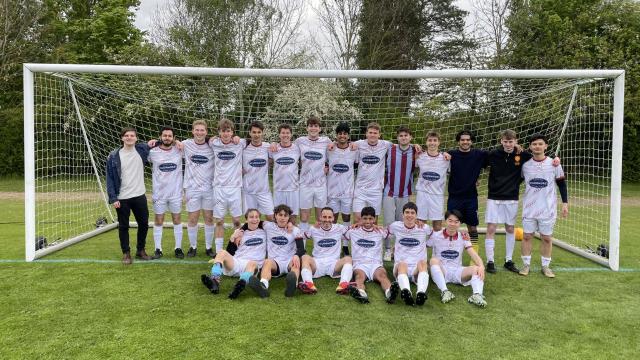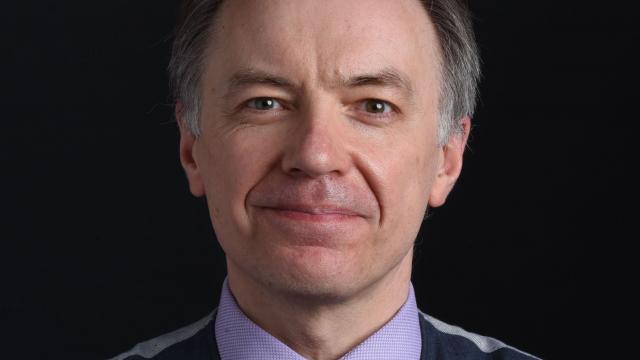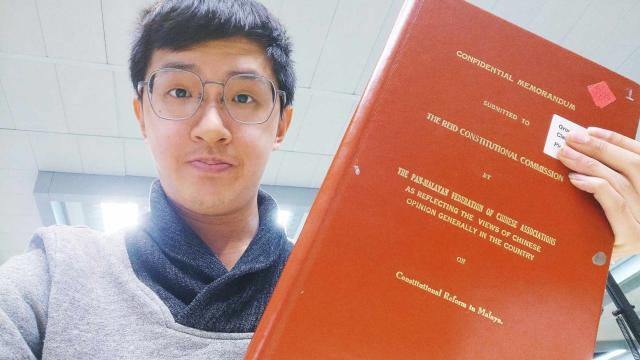
The Northern Ireland Assembly elections – what happens now?
Freya McClements, Northern Editor at the Irish Times, Lisa Claire Whitten, research fellow of politics at Queen’s University Belfast, and Michael D’Arcy, senior research associate at the Centre for Cross-Border Studies, discuss the May 2022 Northern Ireland elections and what the future holds for Northern Ireland, the Assembly, and the Protocol.
Will the DUP relent and join the Executive? What does Sinn Fein’s historic victory mean for nationalism and a United Ireland? Will the UK government and EU resolve the issue of the Protocol? Is it time for electoral reform in Stormont with the growth of middle-ground, non-aligned parties? And we discuss the role of the media in creating and embedding narratives.
Scroll on to discover
- Executive summary
- About the speaker and discussant
- Watch the conversation
- What was said?
Executive summary
The panel discussed the the aftermath of the May 2022 Northern Ireland elections in which Sinn Fèin won a symbolic victory, becoming the first nationalist party to become the biggest party in the Assembly, paving the way for the first nationalist First Minister. With the DUP continuing to protest the Protocol by refusing to join the Executive, therefore collapsing Stormont, the panel discussed the possible future for Northern Ireland politics and what the outcome of the election means for various parties.
- Sinn Fèin’s victory is a profoundly symbolic moment for Northern Ireland. it is the first time a nationalist party won the most Assembly seats since the region's creation. This doesn’t necessarily mean a border poll is imminent in the near future, however, or that Sinn Fèin will begin campaigning for one.
- The growth of the middle-ground through the Alliance party is an electoral trend, not just a 2019 reaction vote. Alliance became the third largest party in the Assembly. This poses big questions for the future of Northern Ireland elections, as some begin to question if one built around the idea of opposing Nationalist and Unionist designations is still relevant.
- Lisa Claire Whitten set out the reasons for the fragmentation of unionism that has seen the decline of the Ulster Unionist Party (UUP) and now the Democratic Unionist Party (DUP), with voters flocking to the hardline Traditional Unionist Voice (TUV). She reasserted that there was still unity on the topic of political unionism, especially around the constitutional issues that have become associated with the Protocol. She also set out some of the misrepresentations of the text of the Good Friday Agreement which have dominated the debate around the Protocol.
- The panel discussed the role of the media in creating and embedding narratives, such as the idea that the Protocol wasn’t functioning in any regard, or that it violates the Good Friday Agreement, as it requires cross-community support. In Michael D’Arcy’s opinion, most people on the Island of Ireland thought the Protocol was working, albeit with some minor problems, before the DUP began their campaign against it.
- Should Stormont remain at an impasse, there is a 24-week deadline before another election would have to be held. Freya McClements argues, however, that this would not resolve matters and is not what Northern Ireland’s voters want; what they want is the Assembly up and running.
About the panelists
| Freya McClements is the Northern Editor at the Irish Times and the co-author of Children of the Troubles: the Untold Story of the Children Killed in the Northern Ireland Conflict which won the Irish Book Awards ‘Best Irish-published Book of the Year’ award in 2019. | |
| Lisa Claire Whitten is a research fellow of politics at Queen’s University Belfast and with the ESCR funded-project, ‘Governance for 'a place between’: the Multilevel Dynamics of Implementing the Protocol on Ireland/Northern Ireland’ | |
| Michael D’Arcy is a senior research associate at the Centre for Cross-Border Studies. He has supported the work of the Ibec/CBI Joint Business Council and has been at the centre of North-South economic interactions for the past 30 years. In 2018 he co-authored The Belfast/Good Friday Agreement, the island of Ireland economy and Brexit. |
Watch the conversation
What was said?
On the 5 May 2022, Northern Ireland held its seventh election since 1998, triggered by the resignation of the First Minister, Paul Givan (DUP), three months prior in protest against the Northern Ireland Protocol. Sinn Fein won a symbolic victory as they won the most Assembly seats (27) for the first time, although this was largely due to a fall in seats for the DUP (25, -3), and a resounding increase in support for the Alliance party (17, +9). This means for the first time since Northern Ireland’s establishment, a nationalist party is entitled to elect the First Minister. With the DUP continuing their protest against the Protocol, however, the future for Northern Ireland remains unclear.
What do these results mean for Northern Ireland? Freya and Lisa both drew attention to the symbolism of Sinn Fein’s victory. Although Sinn Fein didn’t increase their number of Stormont seats, they did increase their percentage of first preference votes (Stormont uses a single transferable vote system), largely a result of a decline in votes for smaller nationalist parties. Lisa explained that this consolidation of the nationalist vote behind Sinn Fèin is likely linked to the widespread understanding that the DUP is reluctant to sit in an Executive with a Sinn Fein First Minister. Despite the symbolism, however, Freya noted that this does not mean a border poll is suddenly on the cards for the imminent future. It does provide succour for those who want to campaign for one, but ultimately the decision remains with the Northern Ireland Secretary of State.
Alliance’s success was another notable outcome of the election, doubling their seats despite only getting 13.5% of first preference votes. Lisa explained that this means Alliance is a very ‘transfer friendly’ option. She also noted that their success confirms support for the Alliance Party as an electoral trend (some thought the 2017 results may have been a unique event). This leads to questions about whether the current system of compulsory coalition between nationalist and unionist parties is still relevant for Northern Ireland as the non-aligned middle-ground grows. Lisa attributed the loss of DUP seats to the fragmentation of political unionism as the TUV gained votes. She pointed out that the DUP will still interpret remaining as the largest unionist party as a clear endorsement of their hard-line position on the Protocol, however.
The Protocol has inevitably been at the heart of the election since Givan’s resignation. Michael D’Arcy offered the business perspective and argued that there is plenty of evidence that the Protocol was bringing stability, exactly as it was intended to. He quoted a NEASR recent report which showed that Northern Ireland was doing better economically than other UK regions, suggesting the Protocol has something to do with it. He also argued that there was a large difference between the public narrative and private conversations around the issues of the Protocol. Until very recently, he argued, bankers were saying that people and businesses were applying for loans and overdrafts, suggesting business as usual, but that it’s only with the big push from the DUP to make the issue the main story that the narrative has changed. In his opinion, the political debate and problems have undermined and overshadowed the positive opportunities offered by the Protocol. He praised the Common Travel Area as a particularly important benefit that was so essential for families, communities, and workers across the island.
When asked if the Protocol was causing instability, Freya commented that Brexit is still at the root of instability, and that the Protocol is just another working out of this tension. Commenting on the DUP’s insistence that the Protocol means Northern Ireland is being treated differently than the rest of the UK, and that this is intolerable, Lisa stressed that Northern Ireland has always had special arrangements, sometimes in line with what the DUP want. One example has been the continued blocking of extending abortion to Northern Ireland, despite women in Scotland, England, and Wales having access to those services.
Much of the commentary around the Protocol has been on whether the Good Friday Agreement had been threatened or not. Michael stressed that the Protocol ‘consolidated the Good Friday Agreement’ in bringing stability to the island. He recalled how difficult it was to do business internationally prior to 1998. He also talked about how the 1998 Agreement encompassed a ‘totality of relationships’ and that the Protocol does the same, but is being viewed in a very narrow sense. Lisa furthered the conversation by unpicking the textual language of the 1998 Agreement that the media keeps quoting and argued that much of it has been misused. She focused on the idea that legislation in Northern Ireland requires ‘cross-community support’ but argued that this does not apply to international treaties, which the Protocol is (between the UK and the EU governments), and that if we play out the idea that that cross-community support is needed, Stormont would have to vote on every international trade deal the UK government brokered.
The discussion routinely returned to the idea of narratives and how they become embedded. Freya suggested that the idea that the Protocol is ruinous for Northern Ireland has been reported so heavily in the British media is potentially due to the fact that predominantly DUP MPs sit in Westminster and raise questions. She also commented that unionism appears to have hitched itself to an interpretation of the Good Friday Agreement which doesn’t exist, and it is very hard to work back from these narratives once they’re fixed. Even if the trade aspects of the Protocol can be fixed, there is a large group of people who now consider their identity undermined which will be difficult to row back from.






